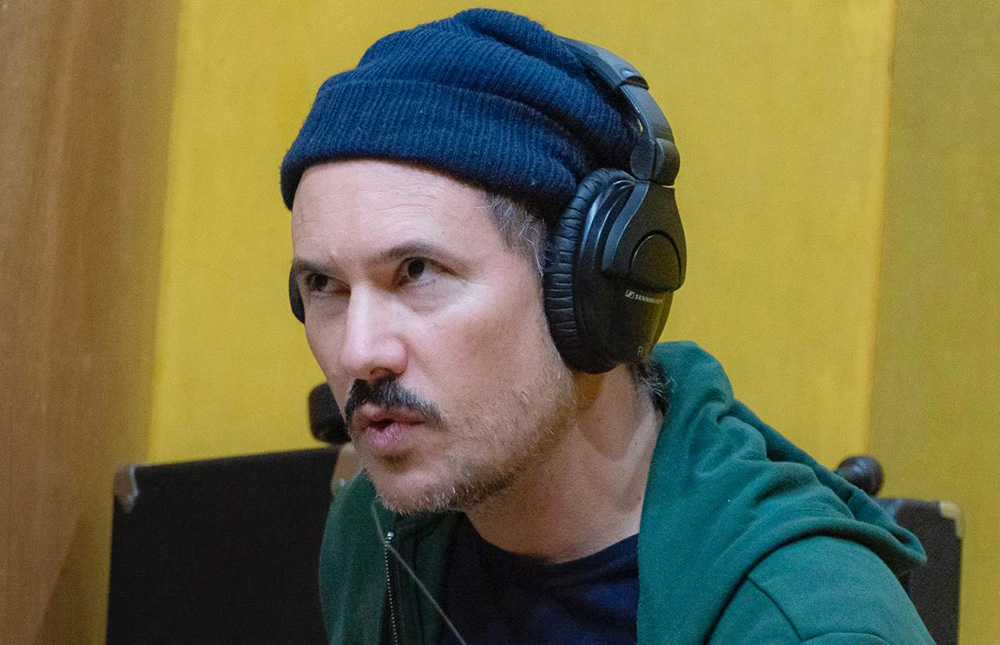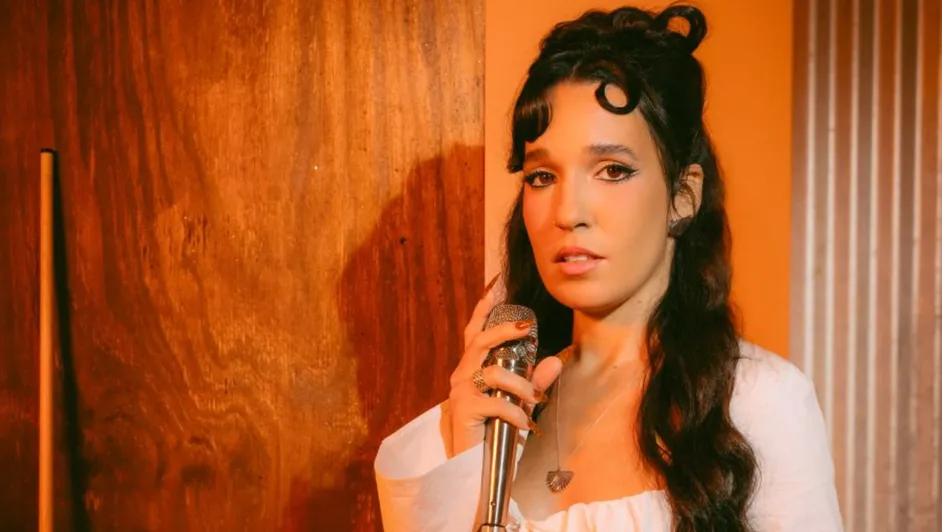The hypnotic beats of electronic music have always been at ease with the traditional rhythms and folk sounds of Latin America. We’ve seen it on the dance floors, especially on the DJ mixers, from different times and places, from Nortec Collective to Dengue Dengue Dengue. We’ve also detected these blends in a more song format, by alternative artists such as Calle 13 and Bomba Estéreo. Precisely there, between its catchy melodies and its hip movement rhythms, we realized that we were witnessing a before and after in the Latin scene. Now, as if we were looking for the after-party of that musical peak, we bring you five artists riding that tropical wave.
Buscabulla
Released early this year, Bad Bunny’s new album served to put some promising bands on the map. It’s that, among its collaborations, there are at least two names unknown to large audiences: The Marias and Buscabullas. Last year we had recommended a single by The Marías. Now it’s the turn of Buscabullas, the colorful Puerto Rican duo made up of the couple Raquel Berrios and Luis Alfredo del Valle. The project emerged in 2014, when they moved to New York, looking for a multicultural context to shape their tropical synth-pop, without losing their Latin roots and singing in their mother tongue. It didn’t take long for them to get noticed on the indie scene.
“Buscabulla” is a rarely used adjective, not heard in all Spanish-speaking countries. It means quarrelsome, shyster, troublemaker. But if it’s written separately, it can be translated as “look for noise”. In 2020, after releasing two EPs and going on tour with Helado Negro, the duo decided it was time to return to Puerto Rico, in one of the worst moments of the island, just when everyone was fleeing from hurricanes. That’s how they finished recording their first album, Regresa. An 11-song work that brings together the Caribbean rhythms of their homeland and the alternative sound of the Big Apple.
Sotomayor
The group led by the Sotomayor siblings is no stranger to us. In fact, here at Tigre Sounds, we’ve already set our ears to review Pahau, singer Paulina’s solo project. Her brother Raúl, in the role of music producer, completes this duo based in Mexico City. Sotomayor never hides their plan of action: to fuse electronic music with Afro-Latin rhythms. This was confirmed from the start with their debut album, 2015’s Salvaje. For their second album, 2017’s Conquistador, they expanded their borders and received the help of former Calle 13 Eduardo Cabra – aka Visitante – to record in Puerto Rico as well.
Backed by New York label Wonderwheel Recordings, Sotomayor comes across as more ambitious and mystical on their third and most recent album, 2020’s Orígenes. Throughout the ten songs, Paulina and Raúl go from intimate and suggestive atmospheres to true and fiery celebrations of body movement. There, surrounded by magnetic melodies, they unfold an electrifying range of rhythms, from reggaeton and funk to cumbia and merengue. Shortly after, in order not to lose momentum, they collaborated with other artists from the same label, first with Populous on “Soy Lo Que Soy”, and later with Thornato on “La Niña Grande”.
Reyna Tropical
Reyna Tropical is the newest on the scene. It’s a Mexican duo based in the United States, made up of Fabi Reyna and Nectali Díaz, who met in 2017 at the Red Bull Music Academy, during a festival in Tennessee. They immediately realized that they shared many things and didn’t hesitate to take advantage of that moment to record a session. Then they returned home, each on their own, she in Portland and he in Los Angeles. They kept recording, every time someone traveled, until completing their self-titled debut EP, released in early 2018. “The first time we really met was playing in front of 2,000 people,” says Reyna, referring to the first time they toured as a band, opening for Bomba Estéreo.
Reyna Tropical’s formula is pure chemistry. Nectalí – better known by his DJ and producer alias, Sumohair – is an explorer of rhythms, from the African diaspora to the Caribbean expansion, from highlife to electronic champeta. Fabi sings like a bird surrounded by nature, venturing into beautiful melodic mantras, while as a guitarist she’s often inspired by Amazonian cumbia. In mid-2019 they released their second EP Sol y Lluvia, driven by magnetic songs like“Como Fuego”. Last year they released the single “Encerrada”, in collaboration with their Mexican-American peers from Y La Bamba.
Update: On July 30, 2022, music producer Nectali “Sumohair” Díaz died tragically in an e-scooter accident in downtown Los Angeles. The sad news was confirmed in August by his friend and DJ Diego Guerrero. His bandmate, Fabi Reyna, announced that she would keep Reyna Tropical going because that’s what Nectali would want her to do. “I’m going to make sure his vision, art, and music live and get distributed as far as my body has the capacity for in this lifetime. And as long as you’re all open to receiving it,” she said at the time.
Mula
Twin sisters Anabel and Cristabel Acevedo have been showing off their talent for quite some time, even earning praise beyond their native Dominican Republic. In fact, before hitting the dance floors with Mula, they’ve been performing for years with their homemade indie folk duo, Las Acevedo, identified by the Quisqueyan roots that make them so proud. In 2015, almost like an unexpected twist, they joined forces with producer Rachel Rojas to create Mula. That year the trio released their self-titled debut album and revealed their identity with a sparkling cocktail of futuristic electronica and Caribbean rhythms.
In 2017, Mula upped the ante with a second album titled Aguas. That record brought them wide recognition and ended up opening the doors of festivals in Brazil and Colombia. Eventually, they joined the lineup of other major festivals in Mexico and Spain. They also began collaborating with other artists, from world music singer Xiomara Fortuna to moombahton king Dave Nada. In 2020, they released the electrifying Mundos, an album that shakes between house and reggeaton, with songs written in all kinds of contexts, from the Bogotá airport or the Havana boardwalk to an after-party in Mexico City.
Lido Pimienta
If there’s someone who doesn’t need much of an introduction here, due to her career, it’s undoubtedly Lido Pimienta. It’s also key to include her: her music is essentially a combination of electronic pop with Afro-Colombian genres and dances like cumbia and bullerengue. Born in Barranquilla, the largest city facing the Caribbean Sea in Colombia, Lido emigrated to Canada while still a teenager. She currently resides in Toronto, where she’s already a renowned artist, especially thanks to the recognition she received after her second album, 2016’s La Papessa, which won the Polaris Music Prize.
A long time has passed since Lido Pimienta’s debut album, 2010’s Color, produced by then-husband Michael Ramey. Today, a single mother and a feminist, the singer-songwriter continues to explore sounds and rhythms that connect with her indigenous and Afro-Colombian roots. Proof of this is her third and most recent album, 2020’s Miss Colombia, critically acclaimed and included in the lists of the best releases by NPR and Paste. Almost all the songs are destined for singles, such as “Eso Que Tu Haces”, “No Pude”, “Nada” (featuring Li Saumet) and “Quiero Que Me Salves” (featuring Sexteto Tabala).








